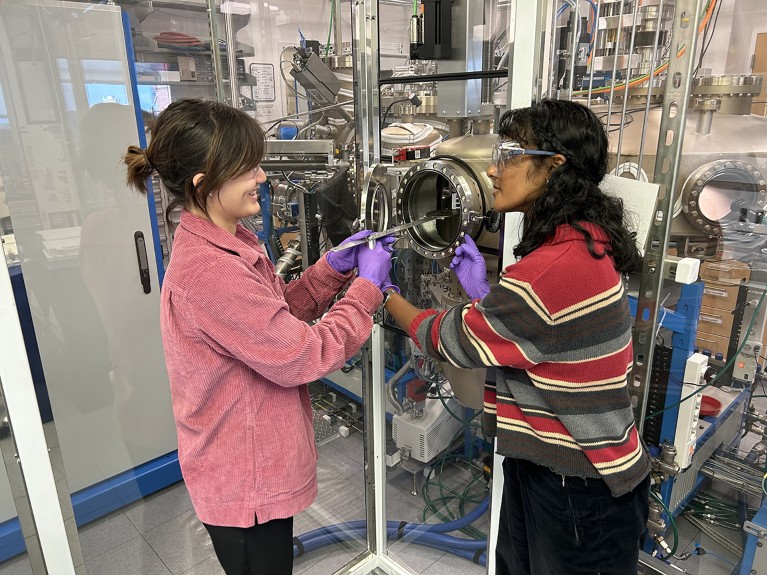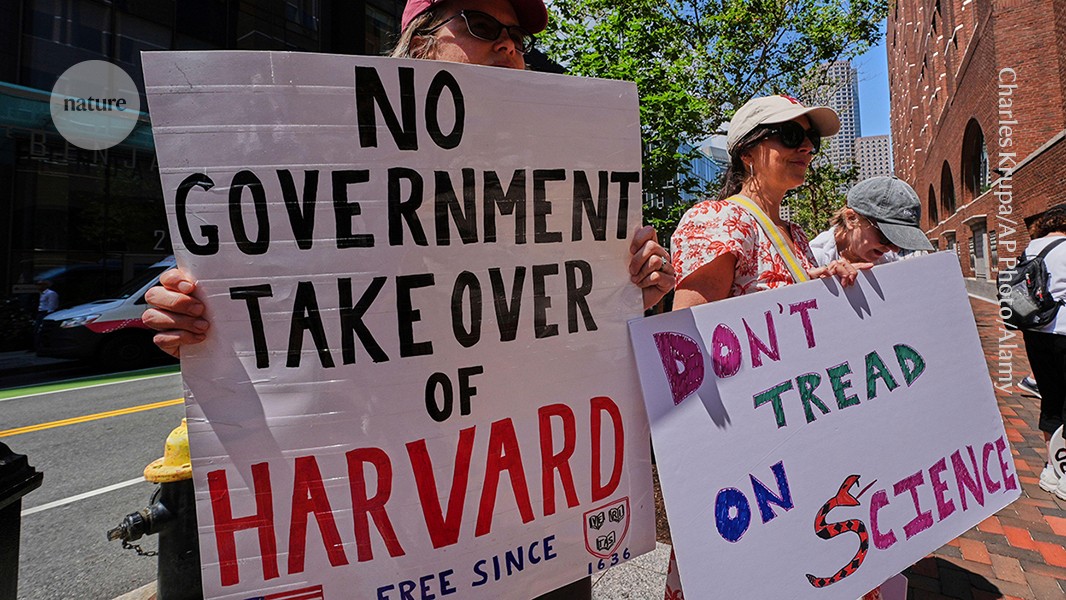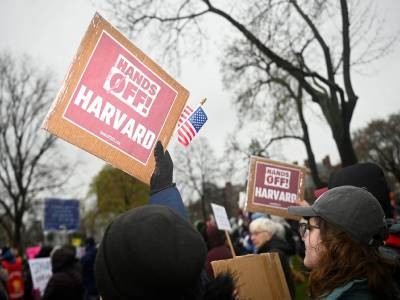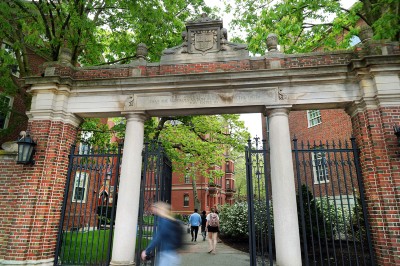Harvard University scored a victory in court two weeks ago, when a US judge ruled that its research grants should be reinstated and its funding unfrozen. But the administration of Republican President Donald Trump does not yet seem to be fully complying with the court order.
Harvard vs Trump: what this epic battle means for science
In May, Trump’s team terminated roughly 1,000 grants awarded to Harvard worth more than US$2.8 billion, citing the institution’s alleged failure to protect its students from antisemitism. An internal e-mail sent on 12 September to staff members at Harvard, which is based in Cambridge, Massachusetts, noted that the university had “received indications” that most of its grants from the US National Institutes of Health (NIH) — a massive funder of biomedical research — had been restored. But researchers have told Nature that they still aren’t receiving the money.
A Harvard spokesperson confirms that “payments have not been restored”, meaning that although the NIH is reactivating grants, the payment system — which operates separately — is still blocked. When asked about the freeze on funding, the NIH declined to comment on the record.
The Trump administration has said it will appeal the Harvard court decision. The case is likely to end up before the US Supreme Court, says David Super, a specialist in administrative law at Georgetown University in Washington DC.
Hong Kong universities woo Harvard international students targeted by Trump
But in the meantime, legal scholars have told Nature that the government should, by this point, have unfrozen Harvard’s money. “You should comply with a court order as rapidly as you reasonably could,” Super says.
At least one US funding agency seems to be restoring funding, however. On Wednesday, the US National Science Foundation (NSF), which financially supports about 25% of basic US academic research, sent an e-mail informing Harvard that its grants have been reinstated and its funding unfrozen. “You may begin drawing funds,” the e-mail states. (The NSF uses a different payment system from the NIH’s.)
One affected researcher is Julia Mundy, a condensed-matter physicist at Harvard who lost a prestigious NSF award for early-career scientists. “This is a positive step,” she says. “But we also still feel a lot of uncertainty, because it doesn’t feel that everything is resolved yet.”
Harvard vs Trump
Harvard has been central to the Trump administration’s campaign to reshape US higher education, which it has said is too left-leaning. In April, government officials froze federal funds to the institution — the wealthiest in the world — and demanded, among other things, that it eliminate diversity, equity and inclusion programmes and achieve “viewpoint diversity” in student admissions and the hiring of faculty members.

Two students work in the laboratory of Julia Mundy, a condensed-matter physicist at Harvard who studies atomically-thin materials.Credit: Charles Brooks
When Harvard refused to fully comply, the Trump team terminated the institution’s federal grants across 19 US agencies, alleging that the university allowed “pervasive race discrimination and anti-Semitic harassment”. The school sued, and on 3 September, Massachusetts district court judge Allison Burroughs ruled that the grant terminations were illegal because they violated Harvard’s constitutional right to free speech.
“There is, in reality, little connection between the research affected by the grant terminations and antisemitism,” Burroughs, who was appointed by former Democratic president Barack Obama, wrote in her decision. She called the claim of antisemitism a “smokescreen” and cited Trump’s social-media posts, including one saying that Harvard is “hiring almost all woke, Radical Left, idiots and ‘birdbrains’ who are only capable of teaching FAILURE to students”.
Court conundrum
The bottleneck in which Harvard’s NIH grants are now held up is a system called Payment Management Services (PMS), which processes requests for withdrawing money from grants and is run by the NIH’s parent agency, the US Department of Health and Human Services (HHS). When asked why grant payments aren’t flowing, PMS directed Nature to submit a Freedom of Information Act request to the HHS.
Harvard researchers devastated as Trump team cuts nearly 1,000 grants
Although it can take time to resume payments, it should not take two weeks, Super says. It seems that the government could be violating the court’s order by only partially complying, he adds.
If Burroughs finds the government has not complied, it wouldn’t be the first time. Just Security, a law and policy journal based in New York City, reports 15 other instances in which US judges have found the Trump administration to be non-compliant with court rulings.





